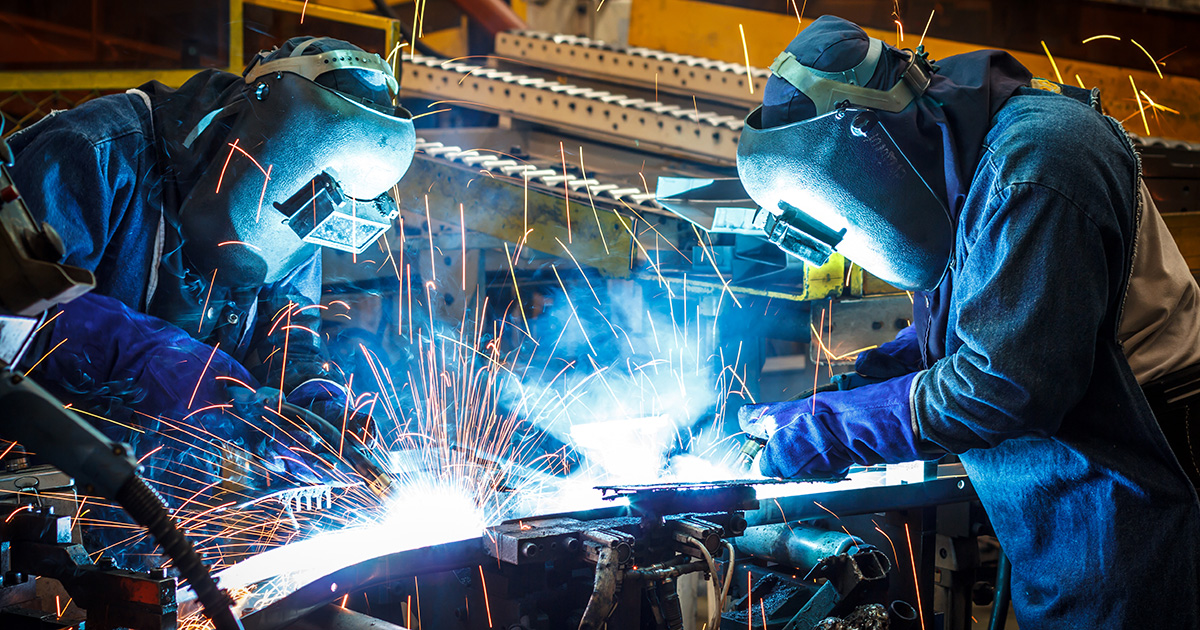
December 18, 2019
Harrisburg – December 18, 2019 – Sen. Jim Brewster (D – Allegheny/Westmoreland) said today that $1,146,950 has been awarded for various railway track upgrades and expansion projects in the region.
“The railways that serve the industrial facilities of our region remain as critical components of highly integrated rail network,” Brewster said. “I am pleased that the state has made this significant investment that will help businesses in the area and create an environment that is conducive to job creation.”
U.S. Steel Corporation has been awarded $689,500 to complete rail track updates to accommodate their new hot rolling mill in Braddock.
Union Railroad was awarded $457,450 to construct new railway track and a new rail turnout that will also serve U.S. Steel’s new hot rolling mill.
PennDOT will be distributing the funds for the projects.
“I will continue to push for investments in railway and manufacturing operations,” Brewster said.

January 11, 2019
Brewster, Hughes, Yudichak to introduce comprehensive legislative package
Harrisburg – January 11, 2019 – Three Democratic state senators today announced a comprehensive package of legislation aimed at sparking a rapid and sustained expansion of Pennsylvania’s manufacturing sector.
State Sens. Jim Brewster (D-Allegheny/Westmoreland), Vincent J. Hughes (D-Philadelphia/Montgomery) and John Yudichak (D-Luzerne/Carbon) said they will sponsor legislation that would better focus state efforts to develop manufacturing opportunities and create jobs.
“We need to focus our efforts and address all aspects of economic development, including manufacturing,” Hughes said. “We have to do better coordinating our efforts, funding job training, purchasing new equipment and investing in communities in need.
“Manufacturing is a large and important part of our economy and it needs to continue to grow and develop. Our urban and rural areas are heavily dependent on this sector of our economy.”
According to the Center for Manufacturing Research, 12 percent of Pennsylvania’s gross state product is directly related to manufacturing with more than 550,000 workers engaged. Manufactured products account for $33 billion annually in exports.
Yudichak’s legislation calls for the creation of a “Chief Manufacturing Officer” within the governor’s office and a “Manufacturing Competitiveness Board” to help craft an overall manufacturing strategy.
“A chief manufacturing officer would serve as a strong advocate for manufacturing at the highest level of state government,” Yudichak said. “The individual who serves in that position should be well-schooled in the development of manufacturing strategies, especially as it relates to rural areas.”
A key aspect of growing the manufacturing sector is having capital on hand to help businesses invest in new equipment and training. Brewster’s legislation would channel up to $5 million in state grants for vocational technical schools, vocational programs and equipment purchases from the state’s Machinery and Equipment Loan Fund. The proposal would increase the maximum loan amount from $5 million to $7.5 million and authorize loans to retrofit equipment.
“This grant program is essential for vocational schools and small businesses,” Brewster said. “The grants would allow schools to purchase state-of-the-art equipment to train a new generation of skilled workers.”
Over the next decade, nearly 3.5 million manufacturing jobs will likely be needed, and 2 million are expected to go unfilled due to the skills gap, according to Deloitte and the Manufacturing Institute.
Hughes’ legislation would expand the Manufacturing Tax Credit by lifting the credit cap to $12.5 million from its current $4 million. A portion of the tax credit – up to $2.5 million – would be set aside for businesses in distressed communities. It would also be used for disadvantaged, minority, women and veteran-owned businesses.
Brewster said that the investment in manufacturing pays dividends for Pennsylvania’s workers. The average annual compensation for manufacturing employees in Pennsylvania in 2016 was $72,151. The average statewide salary for non-manufacturing and nonfarm business in Pennsylvania in 2016 was $49,059, according to National Association of Manufactures – State Data.
“We must have investments in manufacturing to ensure that Pennsylvania has a well-rounded and diverse economy,” Brewster said. Brewster’s Senate district includes many areas dependent on heavy manufacturing operations in the Monongahela and Allegheny River valley’s in Allegheny and Westmorland Counties.
Yudichak, who is from Northeast Pennsylvania, has a diverse district that includes manufacturing operations in cities and rural areas. He said it was critical that Pennsylvania policy stay current with national and international economics.
“A small manufacturing business, often located in a rural area, produces products that are used in goods manufactured all over the world,” Yudichak said.
The changing world economic landscape has altered how manufacturing is being developed and sustained in the United States. In 2015, compared to urban areas, manufacturing represented a greater share of both private nonfarm rural jobs (14 percent vs. 7 percent) and rural earnings (21 percent vs. 11 percent) according to the U.S. Department of Agriculture.
While the legislation was also introduced last session, the Democratic senators said they are hopeful they can advance the legislative package this year. They said will question state officials about their commitment to manufacturing during the upcoming budget hearings.
-30-
October 22, 2012
Harrisburg – October 22, 2012 – The selective tax credit plan pushed by Republicans in the General Assembly is regressive public policy that makes government pick winners and losers among businesses, state Senator Jim Brewster (D-McKeesport) said today.
The legislation allowing employers to keep 95 percent of the state personal income tax they withhold from new employees’ paychecks if the company reaches certain job-creation and job-quality benchmarks passed the Senate 33-16 and the House 111-80 on Wednesday.
Brewster voted against the plan.
“This legislation is poor public policy because it essentially is making an employee pay the employer to have a job,” Brewster said. “Plus, given today’s reported spike in the unemployment rate, it is clear that we need a comprehensive job creation strategy not a selective approach that helps some businesses at the expense of others.”
Brewster said Pennsylvania’s September unemployment rate of 8.2 percent is now 0.4 percent above the level it was in November of 2010 when Governor Corbett was elected. Since that time the national rate has declined by 2 a full percentage points.
“The bill creates the situation where one business is pitted against another in the pursuit of skilled labor,” Brewster said. “The firms that do not receive the tax credit are at a business disadvantage and may experience a deficit of skilled labor.”
The McKeesport lawmaker said that the tax credit legislation muscled through the General Assembly last week is somewhat duplicative since there is already a job creation tax credit program in place. Unfortunately, that program was slashed by the Corbett administration from $22.5 million to $10.1 million this year, he said.
Brewster said that the bill, while ill-advised public policy, was made much better through changes made in committee. The measure was altered to cap the total corporate benefit at $5 million per year, require businesses to create 250 jobs over 5 years and end the benefit in 2018.
“The Corbett administration’s failure to address job loss in a comprehensive fashion has compelled the General Assembly to address the issue on an individual and limited basis. That presents both short-term problems and even longer term issues and is not conducive to job creation,” Brewster said.
“We need an approach to job creation that combines tax credits, job training, infrastructure investment wrapped in a long-term strategy that builds on economic strengths and addresses weaknesses,” Brewster said. “Senate Democrats have put together a plan called PA Works that will create jobs and boost economic development.”
-30-


